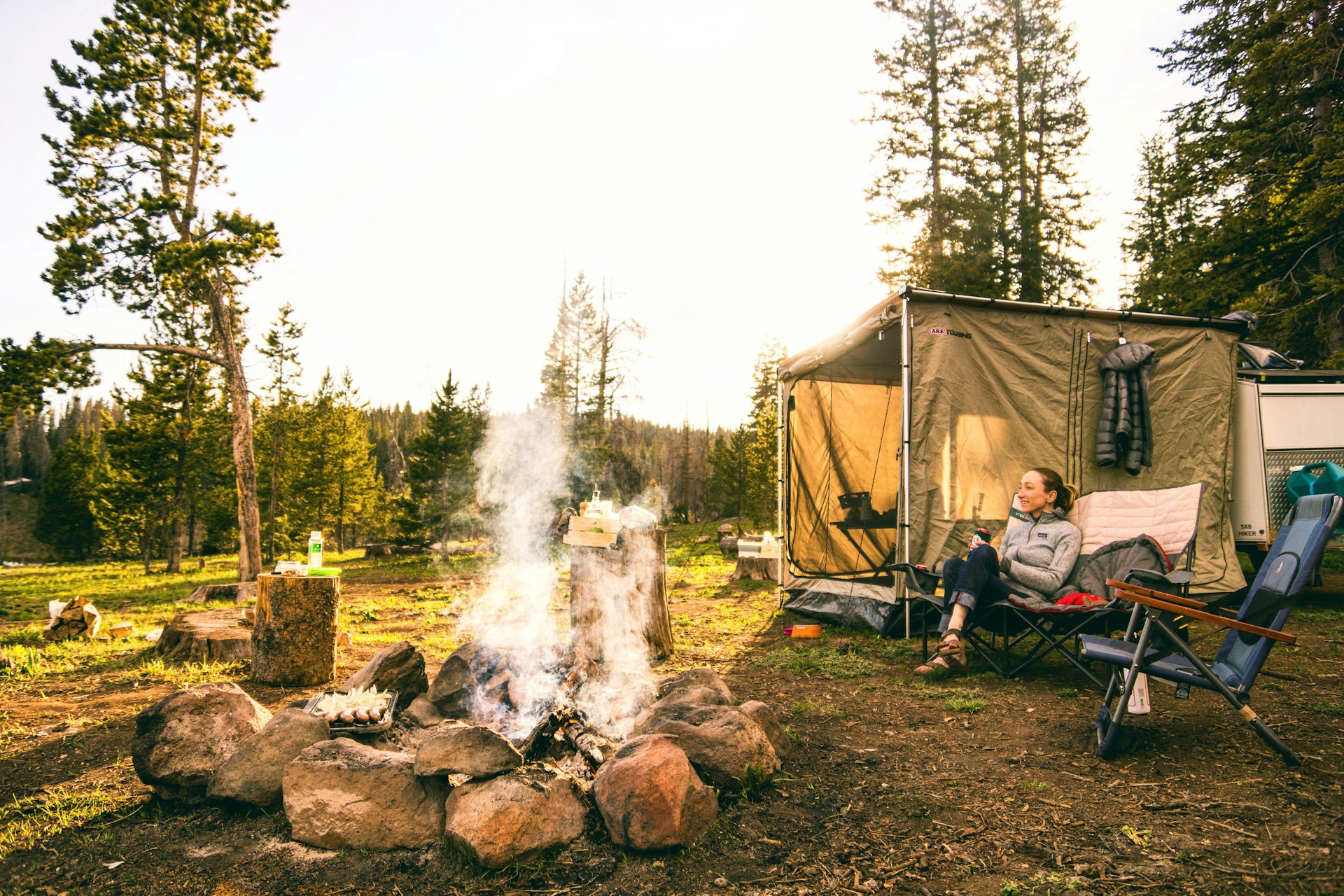Traveling light is an essential skill, especially when planning a camping trip in the beautiful landscapes of the UK. Packing efficiently not only saves space but also ensures that you will have everything needed for a pleasant and safe adventure. In this article, we’ll explore the best strategies for packing light while ensuring you have all the essentials for a UK camping trip.
Planning Your Packing List
Before starting to pack, create a comprehensive packing list. This will help you keep track of all necessary items and prevent overpacking.
A voir aussi : How to camp near coastal bird habitats in the UK without disturbing them?
When planning your list, consider the weather and environment you’ll be encountering in the UK. The UK is known for its unpredictable weather, so it’s best to pack clothing and gear that can handle a variety of conditions.
Clothing Essentials
Opt for quick-drying, multi-functional clothing items. Merino wool garments are excellent as they are lightweight, comfortable, and can be worn multiple times without developing odors. A few key pieces include:
Dans le meme genre : Experience luxury Kauai rooftop camping adventure today!
- Merino wool base layers: Tops and bottoms that can keep you warm or cool depending on the weather.
- Insulating layers: A fleece or down jacket for chilly evenings.
- Waterproof jacket: A lightweight, packable rain jacket to keep you dry.
- Convertible pants: These can be turned into shorts, providing versatility.
- Quick-drying socks and underwear: Always have extras in case of wet conditions.
Essential Gear
When preparing for a camping trip, it’s crucial to carry the right gear without overburdening yourself. Here are some essentials that should be on your packing list:
- Sleeping bag: Choose one that is lightweight and appropriate for the season.
- Tent: Opt for a compact, lightweight tent that can withstand UK weather.
- Sleeping pad: Provides comfort and insulation from the ground.
- Cooking gear: A compact stove, lightweight pots, and utensils.
- Water bottle: A reusable bottle helps reduce waste and ensures you stay hydrated.
Utilizing Packing Cubes and Other Storage Solutions
To maximize space and keep your bag organized, consider using packing cubes. These are an excellent way to categorize and compress your belongings, making it easier to find what you need without rummaging through your entire backpack.
Benefits of Packing Cubes
- Organization: Separate your clothes, gear, and toiletries into different cubes.
- Space-saving: Compress bulky items to save space.
- Accessibility: Quickly locate specific items without unpacking everything.
Additional Storage Tips
- Roll Your Clothes: Rolling your clothes instead of folding can save space and reduce wrinkles.
- Stuff Sacks: Use compression stuff sacks for your sleeping bag and other bulky items.
- Camera Bag: If you plan to bring a camera, use a compact camera bag that doubles as a daypack.
Prioritizing Multi-Functional and Lightweight Items
When aiming to pack light, it’s essential to prioritize multi-functional items that can serve multiple purposes. This not only saves space but also reduces the weight you need to carry.
Multi-Functional Gear
- Convertible Clothing: Pants that turn into shorts, jackets with removable linings, etc.
- Multi-Tool: A compact tool that combines several functions like a knife, screwdriver, and bottle opener.
- Solar Charger: Use a lightweight solar charger to keep your devices powered without carrying multiple chargers.
Lightweight Gear
- Microfiber Towel: Lightweight, quick-drying, and compact.
- **First Aid Kit: A compact kit with essential medical supplies.
- Headlamp: A lightweight headlamp for hands-free lighting.
Packing Tips for Long-Distance Hiking and Camping
For those planning long-distance hikes or extended camping trips, packing light becomes even more critical. Here are some tips to ensure you have everything you need without overpacking.
Weight Distribution
Distribute weight evenly in your backpack to avoid strain. Place heavier items close to your back and lighter items towards the top and outer areas.
Food and Water
- Dehydrated Meals: Lightweight and easy to prepare, they save space and weight.
- Water Purification: Carry a compact water filter or purification tablets instead of hauling large amounts of water.
Footwear
- Hiking Boots: Sturdy, comfortable, and appropriate for the terrain.
- Camp Shoes: Lightweight shoes for relaxing around the campsite.
Final Checks and Travel Tips
Before heading out, double-check your packing list to ensure you have all the essentials without any unnecessary items. It’s important to strike a balance between being prepared and packing light.
Final Checks
- Weather Forecast: Check the latest weather updates to adjust your packing accordingly.
- Test Your Gear: Ensure all your gear is in working order and you’re familiar with its use.
- Travel Documents: Don’t forget essential documents like ID, permits, and maps.
Travel Tips
- Stay Flexible: Be ready to adapt to changing conditions and adjust your gear as needed.
- Practice Pack: Do a trial run of packing and unpacking to streamline the process.
- Leave No Trace: Respect nature by packing out all your rubbish and minimizing your environmental footprint.
Packing light while ensuring you have all the essentials for a UK camping trip requires thoughtful planning, efficient use of space, and the right gear. By following the strategies outlined in this article, you will have a more enjoyable and stress-free camping experience. Remember to prioritize multi-functional and lightweight items, utilize packing cubes for organization, and always double-check your packing list before setting off. Happy camping!

No Responses